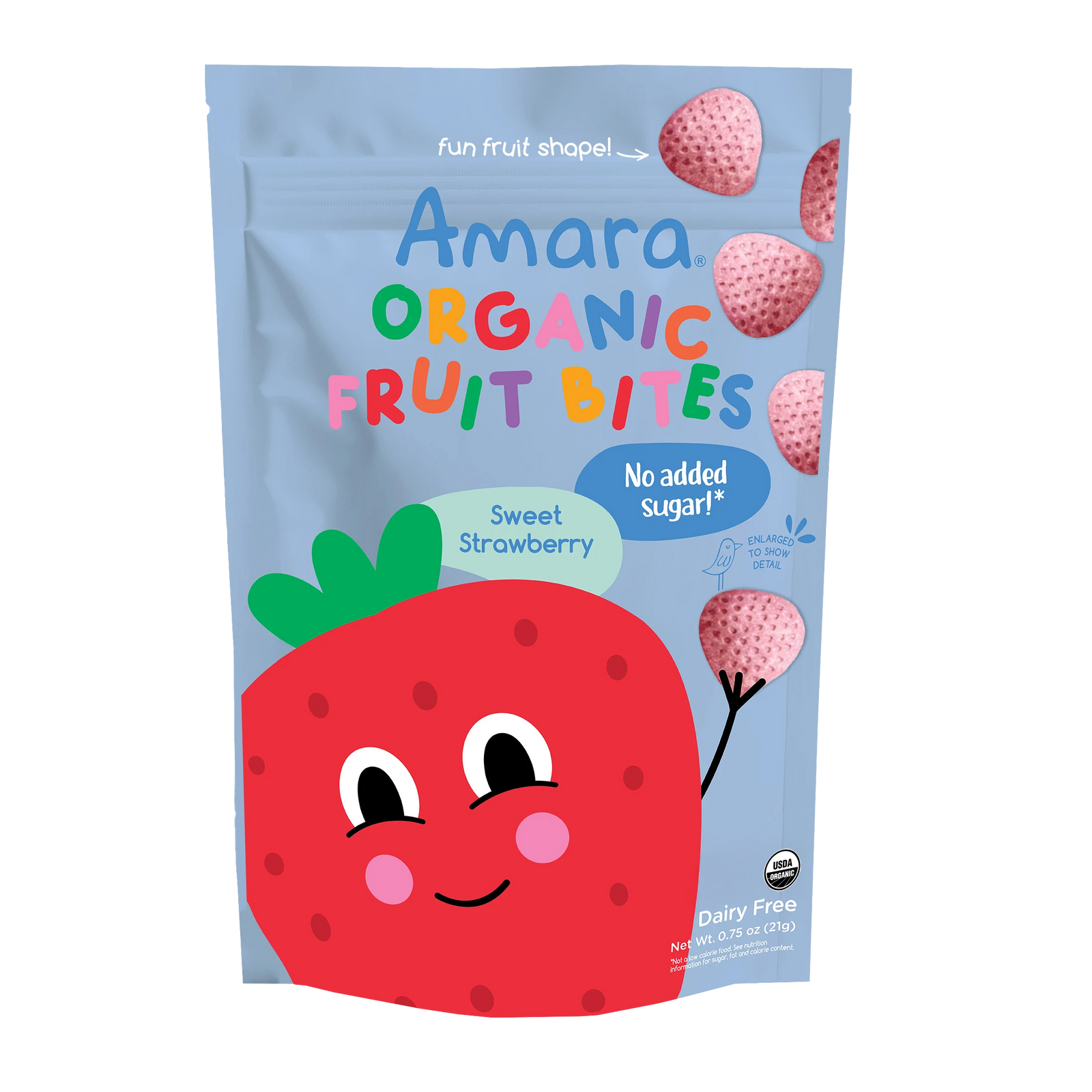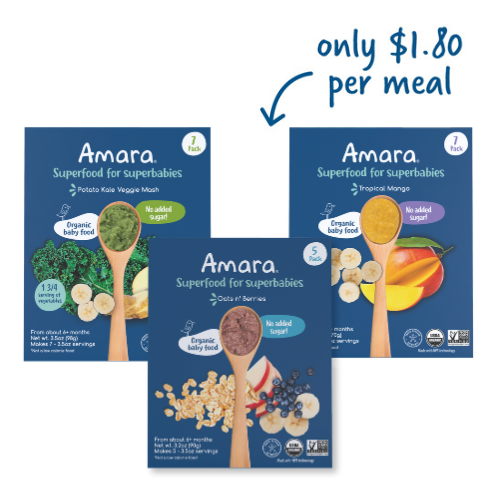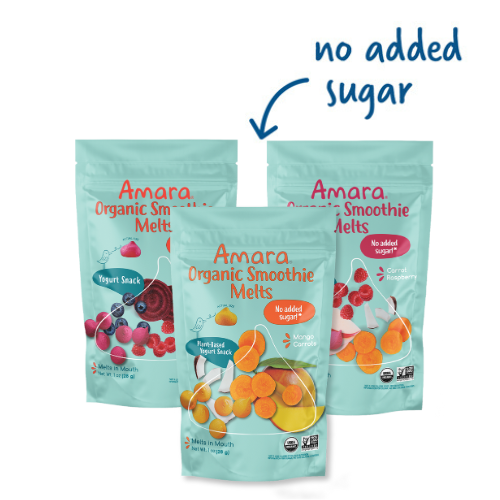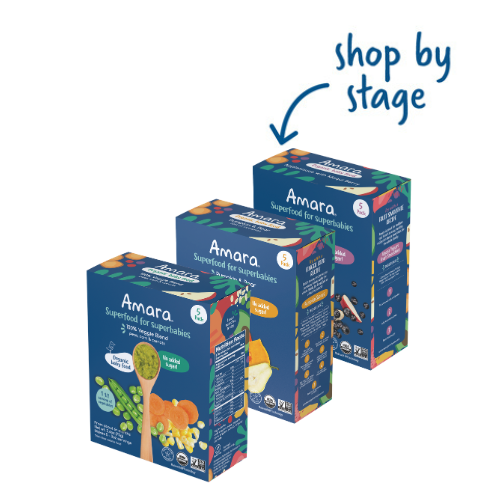
How to Develop Baby’s Gut Health and Strong Immunity
In this post, we’ll take a science-based dive into the relationship between gut health and immune function in a baby’s system in order to gain a deeper understanding of how we can best support its development and function.
Establishing Immunity
Researchers have identified a critical window of time in a baby’s immunity development beginning at conception and ending around two years of age. This is a time of increased sensitivity to all environmental factors. During this time, environmental influences including lifestyle, nutrition, and even socio-economics can create marks on the genome and begin to program health risk and impact future health outcomes. Specifically the development of a baby’s microbiota during this special time speaks directly to future immune strength.
- Baby’s immune system develops during the first 1000 days of growth (from conception to 2 years)
- Baby’s microbiota or “gut” influences immunity development
Developing a Healthy Microbiota
Since the gut plays such a strong role in immune function, let’s start by taking a look at when and how a baby’s gut flora is established. The colonization of gut bacteria begins when the baby is in the lower part of the uterus and their initial gut microbiota is seeded at birth. Research shows that the method of delivery influences a newborn’s gut microbiota. Interestingly, a baby born vaginally will have a gut microbiota that resembles the mother’s vaginal canal. A baby born via c-section has a gut microbiota more similar to microbiota found on the skin. Studies show babies born by cesarean have less bacterial diversity than babies born vaginally, and therefore, can be more susceptible to immune disorders, such as allergic rhinitis, asthma, and celiac disease.
From zero to about three years of age, a child’s microbiota is dynamic, changing with shifting functionality. For example, during breastfeeding, the primary role of the gut bacteria is to facilitate lactate utilization and optimize nutritional uptake from mother’s breast milk. Once weaning begins to occur and solid foods are introduced, the gut’s job changes to begin synthesizing some vitamins, and absorbing minerals, carbohydrates and fats found in foods. At about three years of age the transition is usually complete; a baby is generally fully weaned with a microbiota more closely resembling that of an adult. An individual’s microbiota then remains fairly stable throughout adulthood barring any long-term drastic dietary and lifestyle changes.
Since a baby’s development of gut microbiota between birth and weaning has been closely tied to immune system function, disruptions or alterations in the baby’s microbiota has been linked with increased risk for certain diseases. Some of these disruptions include birth delivery method, feeding with breast milk versus formula, and especially early exposure to antibiotics. Antibiotics, for example, have been shown to have profound effects on a baby’s developing microbiota, decreasing its overall diversity and pointing to the possible development of allergic diseases, such as asthma, atopic disease, eczema, and type 1 diabetes. Hopefully your baby will not need antibiotics, but if they are prescribed by your health care provider, they should be given without delay. Since these disruptions cannot be helped or avoided in many cases, researchers have begun exploring the use of pre and probiotics to help repopulate and diversify a baby’s gut flora. Despite their rise in popularity in the last decade, pre and probiotics still remain under debate and more long-term studies are needed to warrant widespread recommendations.
- Baby’s gut is in flux from 0-3 and then remains somewhat stable into adulthood
- Establishing a strong gut in the first 3 years is beneficial to immune function
- A less diverse gut flora can result in increased risk of certain diseases
- There are 3 main factors which have a positive impact on baby’s microbiota: vaginal birth, breastfeeding, and a delayed introduction to antibiotics
- Prebiotics and probiotics show encouraging results but still need further investigation
Breast Milk, a Healthy Gut, and a Strong Immune System
Research suggests one way parents can kick start baby’s immune system is by exclusively breastfeeding up until 4-6 months before beginning to introduce solid foods to a baby’s diet. Not only is breast milk one of the factors that helps contribute to a healthy microbiota, it also has a host of other protective benefits.
Just as a baby born vaginally has a different gut flora than a baby born via cesarean, a breast-fed and a formula-fed baby also have different microbiota. The oligosaccharides in human milk (HMO), are one of the main components of breast milk. They are only partially digested in the small intestine and mostly reach the colon, where they are fermented, mainly by Bifidobacterium. These HMOs have a clear prebiotic effect. While formula products have been improved recently to also include oligosaccharides, making it possible for a formula-fed infant to establish a Bifidobacterium-rich microbiota, they still have distinct features of their microbiotas, such as the overrepresentation of C. difficile. Another study indicated that the microbiotas of formula-fed infants are enriched with anaerobic organisms such as Bacteroides and Clostridium, whereas those of breastfed infants are more commonly colonized by aerobic organisms.
Recent studies have shown that breast milk is not sterile. It contains as many as 600 different bacterial species. It is suggested that some bacteria may be transferred from mother to child via breast milk. There are a host of substances found in breast milk, such as immunoglobulins, antimicrobial compounds, HMOs, and fatty acids which also work to promote a healthy gut and in turn, a healthy-functioning immune system. Since infant feeding methods, namely breast milk feeding and formula feeding, greatly affect the development of the gut microbiota in early life, breastfeeding is strongly recommended whenever possible for mother and child.
- Exclusive breastfeeding recommended up until 4-6 months when weaning begins
- Differences in microbiota are found between formula-fed and breastfed infants
- Breast milk provides many unique benefits to both a baby’s gut and developing immune system
Weaning, Diet, and Gut Health
Since a baby’s microbiota takes on a major shift once weaning begins, there is an opportunity to continue to support baby’s gut health through first foods. Offering breast milk throughout the weaning process will continue to deliver its immune-boosting effects. Then choose foods that are rich in probiotics as part of baby’s diet. Vegetables, fruit and/or cereals should be central to this approach.
A Gut-Healthy Approach to Weaning
To continue to support baby’s gut health and strengthen immunity, at Amara we have designed purees which are not only veggie-forward with plant-based protein, but are all designed to be mixed with breast milk. Try our Applesauce with Maqui Berry mixed with breast milk or our Kale Veggie Mash mixed with breast milk. Find both of these best-sellers in our Introduction to Texture Variety Pack.
Amara offers a whole-food approach to continuing to enrich baby’s gut flora for a smoother, healthier transition to solid foods. Shop our entire selection of organic, just-add-breast-milk purees here.
- Breast milk should continue to be offered while babies transition to solid foods
- Probiotic foods can be incorporated into baby’s diet
- Amara offers 100% organic baby food blends designed to be mixed with breast milk for a healthier gut and stronger immunity
Happy Feeding!









These great baby tips should be appropriate and valuable for the child, but learning about the best products and supplements suitable for the baby is very important
In addition to paying attention to hygiene and keeping the child hydrated, so keep drinking appropriate fluids for your baby.
https://viaimmune.com/best-baby-products-2021-to-boost-baby-immunity/
– Jonson Manar February 08, 2021